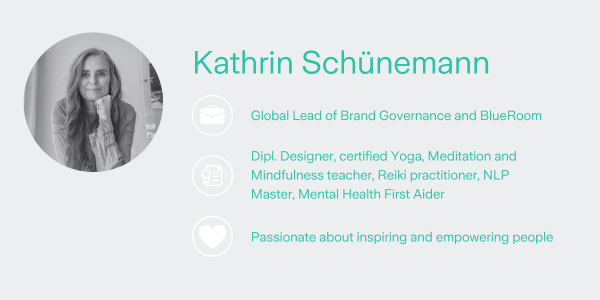The importance of mindfulness
Mental healthHealth TipsApril 11, 2024
Many of us face intense, demanding work environments every day. As our worlds become an increasingly challenging reality to face, we tend to rush through our days, just trying to tick everything off our to-do lists. Whether we’re at work or at home, we keep on running.
Why are mindfulness practices so important for our wellbeing?
Many of us face intense, demanding work environments every day. As our worlds become an increasingly challenging reality to face, we tend to rush through our days, just trying to tick everything off our to-do lists. Whether we’re at work or at home, we keep on running.
To avoid stress and stay focused, it's important for us to take care of our personal wellbeing through the day. Physical activity, reading, and socializing are all very valuable pastimes, but they can often just become a distraction. They keep our minds busy but don’t fully relieve us of stress.
Mindfulness practices can prepare us to better access our creative potential. For example, in creative processes, mindfulness can help us to be in the moment and focus. Fostering “creative wellness” can support a change in our habitual mind patterns. This can lead us to respond to situations in new ways as we act from a different vantage point.
What does mindfulness mean?
Mindfulness can be defined as simply being in the present moment without judgement. This means allowing yourself to simply exist, without thinking about the past and dwelling on memories or imagining a future that hasn’t happened.
By being present in the moment, we can become more aware of our personal reality. By learning to become more present, we can approach situations calmly, and eventually reduce stress and anxiety.
Guided visualizations, breathing techniques, meditations, and slow movements can all help bring us from our busy minds into the now.
Let’s go a bit deeper
“We do not know that a specific brain function generates experience. The brain is simply second-person perspective of first-person experience.” - Bernado Kastrup, Ph.D. (ontology, philosophy of mind), metaphysical idealism
There’s no clear empirical definition of what we refer to as ‘the mind’. Each source varies in their definition, and findings are largely inconclusive. For the purposes of this article, we will say that the mind is a figure of speech, rather than an actual tangible thing.
Thoughts are not something we produce or can control, although we tend to identify ourselves with our mind and our thoughts. The mind analyzes situations we find ourselves in based on our personal experiences. It filters reality and gives us manageable pieces of life to chew on.
This might be hard to grasp as your mind probably didn’t like to read that! It’s not an inherently negative part of the mind, but it’s important to be aware that your thoughts don’t always represent reality. They are concepts and tools, and they don’t necessarily provide us with ‘truth’. It’s hard to know what ‘reality’ is all the time, but it’s just important to remember that our thoughts are mental constructs.
How does this relate to well-being?
We are not considering physical or mental health here, but well-being in the sense of experiencing our true nature. We are trying to connect to our true selves, instead of what we are conditioned to feel about ourselves. This has a huge impact on how we feel and experience life.
We are often very clear about our essence as a child, but in the process of socialization and growing up we can forget.
What can we do about it?
In mindfulness practices, we try to connect more directly to our essence. You can step into the moment when you are just you, before you think about it.
The first step to doing this is through awareness cultivation. This is when we learn to notice sensations, emotions, and thoughts without labelling or judging them. We actively embrace all sensations without rejection or acceptance. We learn to just be.
Mindfulness practices help to create a break from constantly running and bring our attention to what is happening now. They help to establish a new relationship with ourselves, influencing how we deal with daily life, friends, family, and more.
There are various practices you can try at home. If you are completely new to meditation, you may want to try simple guided meditations to get started. Below are two that work well for beginners as well as advanced practitioners:
Get into your body - Let your thoughts go where they will as you bring your awareness into your body. Notice what your body is doing. You might want to start with your breath. Just observe how your body is breathing. No need to understand it. Simply notice it.
What else can you feel in your body? Notice sensations and emotions without any judgement. Just observe. What wants your attention? What wants to show up and be seen? Let your focus move from sensation to sensation as you observe your body and the way it feels.
Meditation - Sit in a state of simple basic awareness, dropping into moments of quiet presence. Just be. Exist. Do nothing but accept what is without reaction or judgement.
Try incorporating a few practices of mindfulness into your day. Start with just a few minutes, and once you get used to it, you might even want to spend more time on it. Any time you can spend simply existing without trying to be anything is a great place to start!
Try a mindfulness session in LiveWell now.


